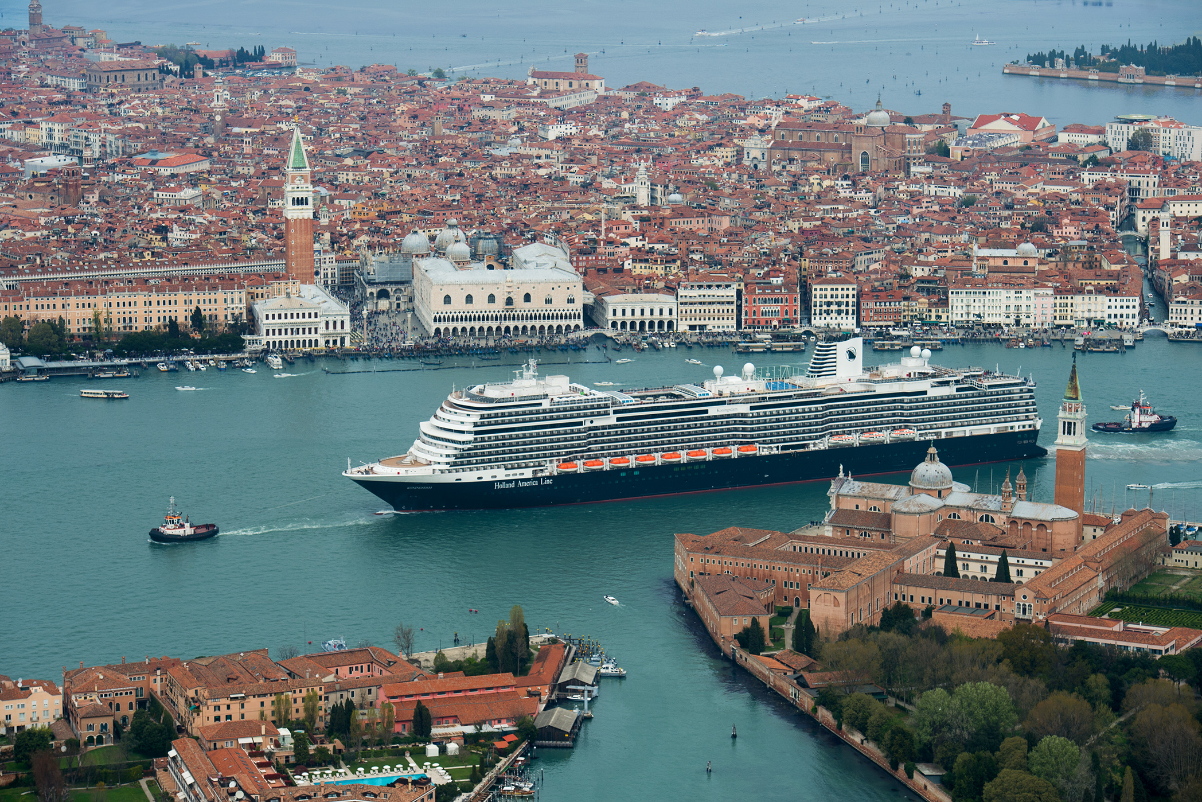The 10 Most Highly Compensated Hotel CEOs of 2015
Skift Take
Another year, another big windfall for Wynn Resorts CEO Steve Wynn — even if it’s about $4.6 million less than the $25.3 million he took home last year.
Even with his diminished compensation total from 2015, Wynn, with nearly $20.7 million far out-performed the pack of most highly compensated hospitality CEOs for 2015, making $5.7 million more than his nearest competitor. Coming in second was Wyndham Worldwide CEO Stephen P. Holmes, who took home about $14.9 million.
Hotel CEO compensation totals continue to be a bellwether, of sorts, for the strengths of their respective companies and the health of the hospitality industry as a whole. Here’s a closer look at who made what, and why.
Gaming CEOs
In keeping with trends we’ve tracked in 2013 and 2014, gaming CEOs were at or near the top of the list yet again, even if many of those major gaming companies, especially Wynn and Las Vegas Sands, had to deal with dwindling tourism and casino revenue numbers from Macau following a crackdown on questionable junkets and lavish spending by Chinese nationals.
Even so, MGM Resorts International CEO James J. Murren (about $13.3 million) and Las Vegas Sands’ Sheldon Adelson (about $12.2 million) both saw their total compensation figures rise slightly in 2015 compared to 2014, placing them in the third and fifth positions on the list.
Also making an appearance on the list was Caesars Entertainment CEO Mark Frissora, the former CEO of Hertz, who took home about $12.8 million in 2015, for fourth place. Frissora took leadership of the company, which filed for bankruptcy in January 2015.
Frissora succeeded Caesars’ current chairman, Gary Loveman, in July 2015. Since its bankruptcy, Caesars, once the world’s largest gaming company, has struggled, posting a first-quarter loss of $308 million in 2016, compared to a profit of $6.77 billion in 2015.
In 2014, as Caesars CEO, Loveman took home a total compensation package of nearly $32.7 million, of which $20.8 million was in the form of stock awards. In 2013, Loveman’s compensation as CEO was about $7.6 million.
The slight bump in compensations for the gaming CEOs from 2014 to 2015, with the exception of Wynn, could speak to the fact that Vegas tourism continues to do so well. Whereas casino revenues in Macau have been in a slump for the past two years, strong non-gaming revenues in Las Vegas have helped casino operators, which is also why many of them have embarked — or plan to embark — on massive non-gaming attractions. These include Wynn’s planned “Paradise Park” theme park; MGM Resorts’ The Park, which just opened; and Caesars’ Linq entertainment/retail/restaurant area on The Strip.
Starwood’s CEO Shuffle
Even though Frits van Paaschen was officially the CEO of Starwood Hotels & Resorts for a little over one month in all of 2015 when he was let go in February 2015, he took home a fairly sizable amount of compensation via a monthly consulting fee of $104,167 through May 31, as well as a severance package worth nearly $8 million.
All together, van Paaschen walked away from Starwood with about $8.3 million, which is slightly more than what interim CEO Adam Aron (about $8 million) and current CEO Thomas Mangas (about $4 million) collected in 2015. The $8.3 million van Paaschen collected in 2015 isn’t as much as the $12 million he took home in 2014, but it’s not bad for an ousted CEO.
To say last year was a tumultuous year for Starwood would be an understatement. The company announced it was up for sale last year and under Aron’s leadership, the company found buyers both for its vacation timeshare business, Vistana, and for the company itself.
In November, Marriott announced it would buy Starwood for an approximate $12.2 billion in stock and cash, thereby creating the world’s largest hotel company. That acquisition encountered quite a few snags along the way, especially in March when a last-minute takeover bid came in, but it is finally expected to close by the middle of this year.
Aron left Starwood to serve as CEO of AMC Entertainment in January and was succeeded by Mangas, the company’s former CFO. Mangas was responsible for guiding Starwood through one of the company’s most turbulent periods to date — the last-minute bidding war between Marriott and a consortium led by Anbang Insurance Group, the same Chinese company that owns the historic Waldorf-Astoria in New York and is purchasing Strategic Hotels & Resorts from Blackstone this year.
The rival takeover bid from Anbang, although a major headache for Marriott executives, was a positive for Mangas. Once the Marriott deal closes, Mangas, along with four other Starwood executives, will receive a golden parachute worth about $12.2 million. Had Anbang not interfered in the merger-acquisition process between Marriott and Starwood, Mangas would have only received a golden handshake of about $6.1 million.
All together, Starwood’s CEO shuffle in 2015 cost the company a total of about $20 million, which is about $8 million more than what it spent on its one CEO in 2014.
A Winning Year for Wyndham’s CEO
This year, Wyndham Worldwide CEO Stephen P. Holmes was again the top-ranking non-gaming CEO, and the company’s strong results in 2015 seem to support his nearly $15 million in compensation.
The company saw a 5% increase in its total revenues in 2015, compared to 2014, with total revenues of $5.54 billion, and a net income increase of 16%, for a total net income of $612 million.
Wyndham’s business encompasses Wyndham Hotel Group, currently, the largest hotel company in the world based on the number of hotels; Wyndham Destination Network, a professional vacation rental management company; and a timeshare business, Wyndham Vacation Network.
Last year was an especially pivotal year for Wyndham. Its hotel group launched a new rewards program geared toward leisure travelers, and the company began to invest in revitalizing and refreshing its hotel brands, many of which occupy the economy and midscale sectors.
Hilton and Marriott: Neck and Neck, Almost
While there was an approximate $5 million difference between their compensation packages in 2014, Marriott CEO Arne Sorenson and Hilton CEO Christopher Nassetta both took home roughly the same amount in 2015, give or take about $700,000.
For Sorenson, 2015 wasn’t as lucrative as 2014, when he collected about $14.9 million. Instead, in 2015, his total compensation amounted to $10.9 million. While Sorenson’s salary remained the same as it did in 2014, he saw his stock awards drop by about $4 million from 2014 to 2015.
For Nassetta, 2015 was a good year. Nassetta earned $9.9 million in 2014, while this year, he earned about $10.2 million, seeing increases in his stock awards.
Both Hilton and Marriott had pretty pivotal milestones in 2015. In December, Hilton announced it would spin off its hotel properties into a real estate investment trust, as well as its timeshare business — a move Marriott made years ago. In November, Marriott announced its planned acquisition of Starwood.
Hilton especially had a solid year, financially, in 2015. Its system-wide revenue per available room in 2015 increased by 5.4% in 2015 compared to 2014, and it ended 2015 with a development pipeline of 266,000 rooms, representing one in five of all rooms under construction on a global scale. In 2015, the company welcomed a net total of 43,000 new rooms to its system.
Marriott saw a 24% increase in its earnings per share in 2015, compared to 2014, for a total of $3.15, while its revenue per available room index increased by only 0.4 percent.
Hyatt: Up There with the Big Guys
Hyatt may not be as big or Marriott, Starwood, Hilton, or Wyndham, in terms of the number of properties it has, but its CEO, Mark Hoplamazian, is still one of the most highly compensated in the industry, with a base salary of about $1 million.
The executive compensation committee at Hyatt also found his performance in 2015 to be right on target in terms of achieving his primary goals related to leadership, onboarding Hyatt’s new CMO, and capital planning.
The following are the most highly compensated hotel CEOs among public companies in 2015:
| Hotel Brand | Title | Name | Salary | Stocks, Options, Incentives, Bonus, Pension Change | All Other Compensation | Total |
|---|---|---|---|---|---|---|
| 1. Wynn | Chairman and CEO | Stephen A. Wynn | $2,500,000 | $17,500,000 | $680,391 | $20,680,391 |
| 2. Wyndham Worldwide | Chairman and CEO | Stephen P. Holmes | $1,595,784 | $12,287,353 | $1,089,170 | $14,972,307 |
| 3. MGM Resorts International | Chairman and CEO | James J. Murren | $2,000,000 | $10,703,793 | $568,147 | $13,271,940 |
| 4. Caesars Entertainment | President and CEO | Mark Frissora | $1,599,231 | $10,959,025 | $254,574 | $12,812,830 |
| 5. Las Vegas Sands | Chairman of the Board, CEO, Treasurer | Sheldon Adelson | $1,000,000 | $7,838,308 | $3,351,162 | $12,189,470 |
| 6. Marriott International | President and CEO | Arne Sorenson | $1,236,000 | $9,533,006 | $206,411 | $10,975,417 |
| 7. Hilton Worldwide | President and CEO | Christopher J. Nassetta | $1,246,154 | $8,901,884 | $69,413 | $10,217,451 |
| 8. Starwood Hotels & Resorts | Former President and CEO | Frits van Paaschen | $304,483 | $0 | $7,972,720 | $8,277,203 |
| 9. Starwood Hotels & Resorts | Former Interim CEO | Adam M. Aron | $925,051 | $7,013,354 | $89,861 | $8,028,266 |
| 10. Hyatt Hotels & Resorts | President and CEO | Mark S. Hoplamazian | $1,060,833 | $5,955,470 | $48,363 | $7,064,666 |
Source: U.S. Securities and Exchange Commission filings




